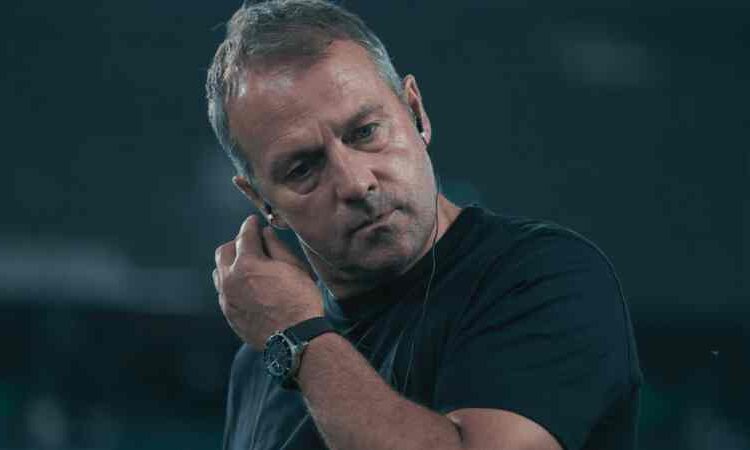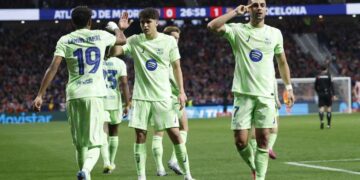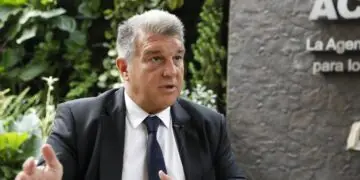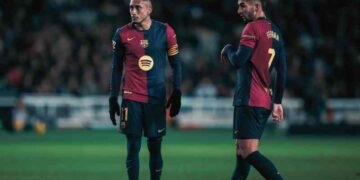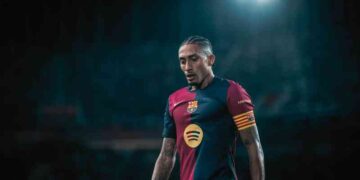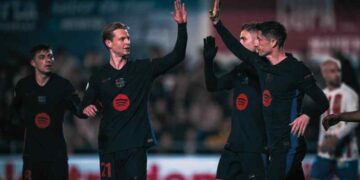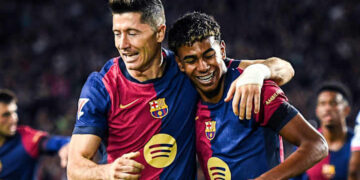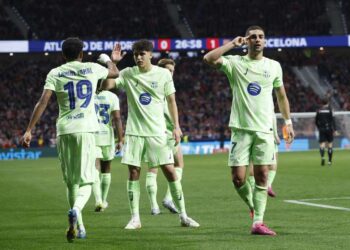A cloudy day in Barcelona, the last week has seen various storms pass by in the Catalan capital. This is not typical, but the mood could not be lighter: the tension is palpable, nobody can heard the birds singing. Club legend Xavi Hernández was thanked for his service, only one month after the two parties announced the Catalan would continue. It is rare for coaches to announce in early January that they will not continue beyond the summer. As unpredecented as it is, the fiasco only reached new heights, as Xavi reverted his decision.
While the public knows that this is likely a consequence of Xavi’s never-ending love for Barcelona – the club could not find a replacement – it never felt right. Despite nobody cheated in this complication relationship, the odor of betrayal has never been stronger. A week afte Xavi had been dismissed, the inevitable happened: Barcelona announced the new head coach, Hans-Dieter Flick.
A Shift in FC Barcelona’s Strategy
Xavi Hernández was not fully equipped for the job, and nobody doubts he was far from a failure. But the endings showed short-comings from the Catalan, unable to adapt the complicated situation of the club. Many players liked Xavi, especially Gavi – injured in a friendly, he will never play with under the guidance of ‘The Chameleon’. It hurts. The change was needed, but many remain unsure whether this is the right change. The fanbase has craved for influence from abroad on the club’s methodology. The German ‘gegenpressing’ philosophy became the new trend a few years ago.
‘Hansi’ Flick embodies this philosophy well. He is a winner – he won the sextuple with Bayern a few years ago. The best memories last shorter than any other, and soon enough, he was gone. Flick joined the DFB (German National Team), a tenure that will easily be forgotten in history. His team was not memorable in any way, and Germany’s lack of silverware during his tenure remains bitter to the taste of many German fans.
Another problem is the switch of cultures, and Flick’s lack of experience abroad. Until now, the Heidelberg-native remained in Germany. That cultural environment will not be found in Barcelona, far from it. At Bayern, Hansi Flick already clashed with board as he wished to take the reigns over the club’s transfer. The request was not only not granted. But that was only the beginning of many disputes between the sextuple-winner and the board of directors. It was reported that one of the disputes betwen Xavi Hernández and Deco was the exact same matter. Therefore, Flick will have to keep his head down to not detonate the dynamite in an already tense environment.
Integrating Flick’s Philosophy at Barcelona
Beyond transfers, what style should the club look to play could be another cultural shock. As Bayern is the only tenure one can rely on to evaluate Flick – this was a vertical team. Hansi always had a deep-lying playmaker that played the killer pass in Thiago Hernández and Joshua Kimmich, while having goal-scoring wingers in Leroy Sané and Serge Gnabry. Playing through the middle was a repeated pattern, although the wings were often used as well, given the profile of Alphonso Davies, a dynamic player on the wing that ran up and down. All of this verticality however was tuned to the sound of Bayern’s melody.
The staff’s philosophy, especially when it comes to physical preparation, differs a lot. It remains unclear whether Flick will bring the entirety of his staff – especially those credited for the physical transformations of Goretzka and other players. The two footballing cultures (Spanish and German) could not differ more. It would be foolish to assume Hansi Flick would attempt to play in a similar fashion in the Catalan capital. The new head coach knows that he does not have similar profiles – but he has other types of players.
Hansi Flick’s Tactical Dilemma at Barcelona
The world has never seen Flick play anything different from the classical 4-2-3-1. The critics are harsh: Flick could adapt. The problem lies in the realization that in case Flick adapts to Barcelona’s usual 4-3-3, both parties will enter the surface of uncertainty. It would mean Barcelona would have to fish in the ocean of transfers for a single pivot – famously a difficult market.
The only linked targeted is Valencia midfielder Pepelu – whether Flick would like to rely on him, is another question. It is likely that Flick will change – but how will he? Certain profiles will be obvious candidates as his favorites – Pedri, Gavi, Alejandro Balde, possibly Ansu Fati and Fermin Lopez. How Frenkie de Jong would evolve is certainly worth mentioning – and how he uses Araujo and Cubarsí is another. A high-line would be expected, but pressing schemes would need to improve. If there is one positive change Barcelona is certain of coming under Flick’s belt, it would be the improvement of pressing. This is the German element fans requested for years; how that would be achieved is a question that requires more thought.
Bottom Line
Barcelona and Hansi Flick both have a lot to lose, and as much to win. The two parties find it difficult to find a project after their last project aged like milk. Flick is only the third German coach of the club’s history – and the first one of the 21st century at the Catalan club. While it could improve and serve as a stepping stone, the project could rapidly pluge into darkness should Flick find it difficult to deal with the media culture. Xavi Hernández, a club legend, was overwhelmed and burned out by the repetitive noise around the club. Will Flick be able to handle it better? This is a question that nobody but time can answer.
Positional play expressed through all phases of play, a football fan that fell in love with the Beautiful Game over 10 years ago. Occasionally writes about FC Barcelona for Barca_Buzz, on tactics and attempts to explain the game to the casual eye.
Discover more from Barça Buzz
Subscribe to get the latest posts sent to your email.

